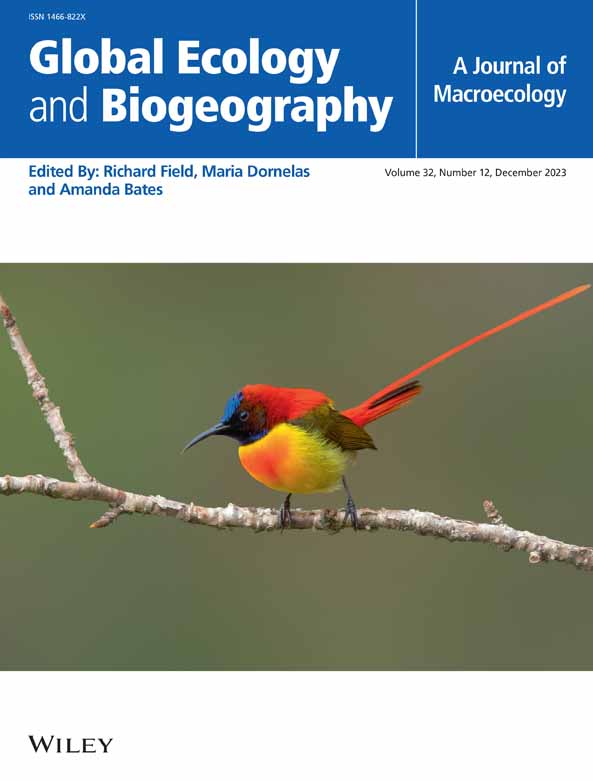Global Distribution of Mammalian Cradles and Museums is Driven by Past Climate Dynamics and Present Water–Energy Balance
Abstract
Aim
To describe worldwide distribution of mammalian cradles and museums using the rates of phylogenetic lineage turnover as a surrogate. Additionally, we investigated the influences of current water–energy dynamics, climate instability, past climate changes and elevational ranges on the distribution of these evolutionary zones.
Location
Global.
Time Period
Current.
Major Taxa Studied
Terrestrial mammals.
Methods
We developed a new methodology that consists of calculating the spatial phylogenetic turnover for non-overlapping temporal segments of phylogenetic trees. By calculating the relative turnover in each tree segment, we quantified the rate of accumulation of phylogenetic turnover through time. We depicted cold and hotspots of rates of lineage turnover using bivariate maps and examined the effects of environmental factors using a path model.
Results
The distributions of cradles and museums of biodiversity are primarily driven by water–energy dynamics. Environments with higher water availability than energetic demand predominantly act as cradles, as seen in tropical rainforests, while xeric-like environments predominantly serve as museums. Conversely, regions undergoing higher historical climate changes become cradles, such as in higher northern latitudes, while climatically stable areas function as museums. Mountains play a dual role, acting as both cradles and museums by generating new lineages along their elevation bands while simultaneously providing climate refuges for ancient mammal lineages.
Main Conclusions
Our findings demonstrate that cradles and museums are not merely a dichotomy but exist along an evolutionary continuum. Furthermore, they reveal how spatial patterns of mammalian cradles and museums are intricately shaped by biogeographical processes governed by environmental forces. Uncovering these hidden effects provides insights into the ecological mechanisms by which ongoing climate changes continually shape evolutionary assemblages over time.

 求助内容:
求助内容: 应助结果提醒方式:
应助结果提醒方式:


